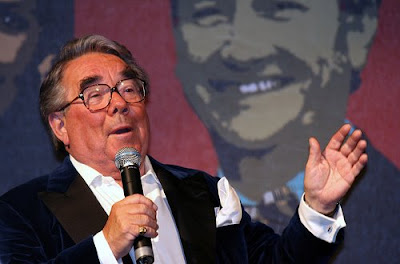
I have resigned from my job as a Waterstone's manager. I have no idea what I'm going to do next, but in spite of this I know that I've made the right decision. I'll miss my friends and I will also miss working with books, but I felt that I had no choice but to leave.
I used to be a manager for Ottakar's Bookstores and loved my job. Under the charismatic leadership of James Heneage, Ottakar's was a wonderful company to work for that valued individuality and creativity over compliance and procedure. As a manager I felt that my remit was to ensure that staff morale was one of the top priorities and I found it really rewarding to see booksellers develop and become managers themselves.
Sadly, in 2006 HMV Media bought Ottakar's and incorporated it into its Waterstone's chain. Within a matter of months every branch of Ottakar's was rebranded and new systems were introduced. I tried to be open-minded about my new employer, but like many of my colleagues, I felt increasingly disillusioned by certain aspects of the business.
It is tempting to write a long, damning diatribe against Waterstone's, but although it might be cathartic to vent my spleen, I would be doing a disservice to the many people who work there who are passionate about books and often do an excellent job against the odds. There are many good things about Waterstone's, but the sum isn't equal to its parts. My own impression is that the company is over-regulated and that there are too many people in middle-management who don't understand the book trade and treat it like any other area of retail, referring to books as product. Bookselling is different.
Perhaps the most succinct and articulate summary of the differences between Ottakar's and Waterstone's was made recently by a former colleague, who wrote:
There seems to be a different definition of what makes a good manager in W - a competent administrator who can follow and implement instructions. O managers were encouraged to focus on running and developing a business. Two different aspects of the same role, but I think many of those who, like you, excel at the latter find nothing satisfying about spending eight hours a day doing the former.
Apparently there is a sea change at Waterstone's. A staff opinion survey revealed that morale was even lower than the senior management feared and this year there will supposedly be a concerted effort to bring back the passion and individuality that made Waterstone's so special in the distant past. The managers I've spoken to certainly seem more optimistic than they have been for a long time. I hope that the senior management have the vision to make real changes rather than cosmetic ones.
If I ran Waterstone's I would scrap at least half of the checklists and reports that are released every week, ensure that a manager's accountability was proportionate to the control they had over their shop and finally, I would make it a sackable offence for anyone to use the acronym JFDI (Just Fucking Do It)!
Between a third and half of Ottakar's managers have left Waterstone's in the last couple of years. Some left straight away, but many decided to see what life was like under Waterstone's before deciding it wasn't for them. Interestingly, in some areas of the country the number of resignations has been lower than a quarter whilst in others it has been well over 50%, which would suggest that the local regional manager has exercised some influence in people's decisions. I have heard some very disturbing allegations, which I won't repeat here.
Financially, Waterstone's is in a stronger position than it has been for years. The latest managing director has introduced many important commercial improvements, including a transactional website and a loyalty card, but it is relatively easy to improve a company that has been poorly managed in the past. The real challenge is to restore that indefinable but vital element that made Ottakar's such a wonderful company to work for: the magic.
I am now unemployed and should be feeling despondent, but in fact I'm happier than I have been for years. I no longer have to lie awake at night worrying about deadlines and targets. I don't have much money but I am free and that feels great. I have also discovered that it's possible to live on very little if you really put your mind to it.
Strangely enough, although I am not working I'm actually busier than ever. In addition to working as a part-time magistrate I have two children to look after, a home to decorate and lots of forms to fill in to prove that I'm not trying to defraud the state. It's a full life.
At some point in the near future I will work again. It may be in the book trade, but I'm also tempted to try something completely different - possibly in the environmental or charity sector. Whatever I end up doing, it will have to be something I feel committed to. Life is too short to spend 40 hours a week doing something you don't enjoy.
In the meantime I have lots of books to read, starting with Tom Hodgkinson's How to be Idle.





